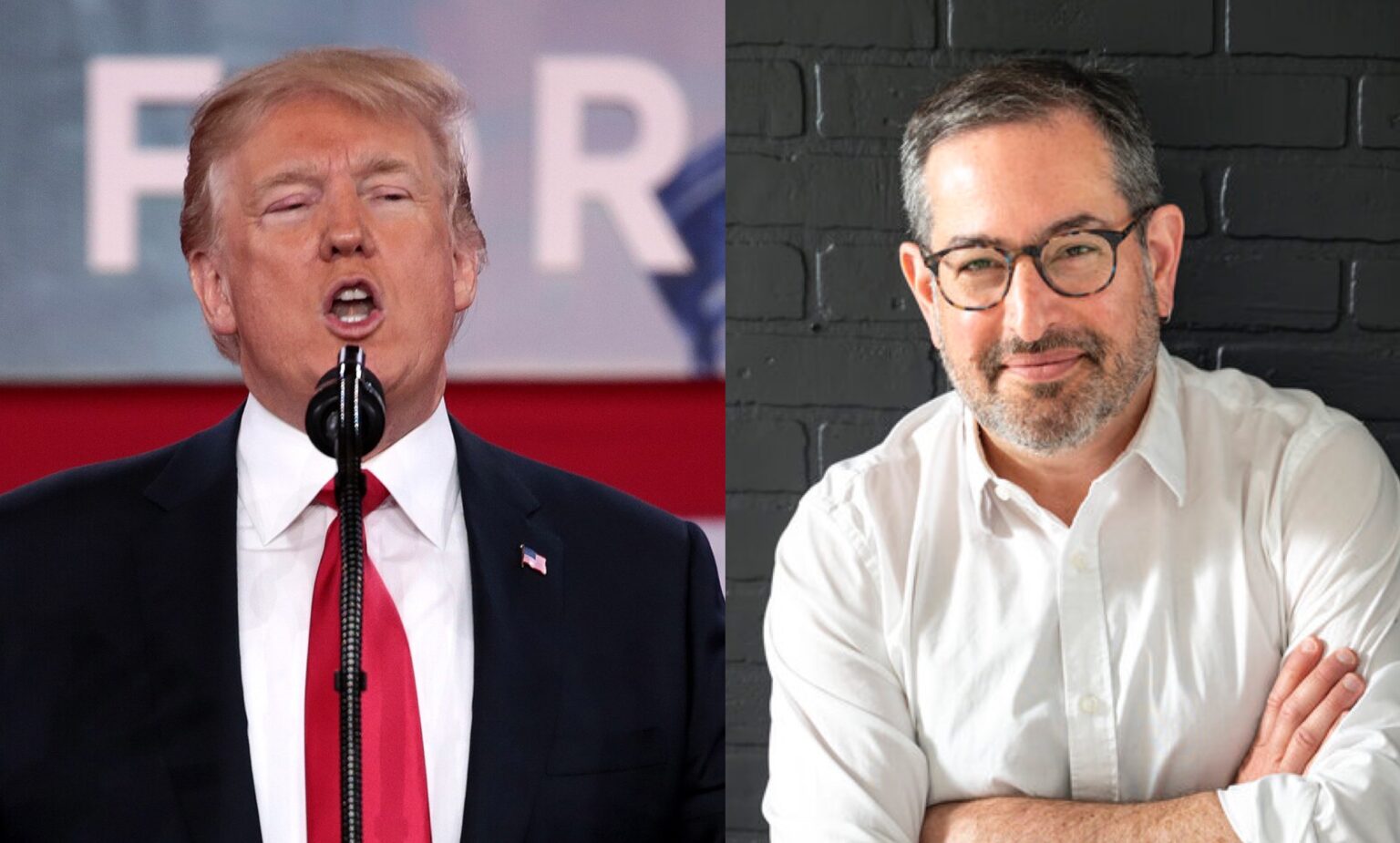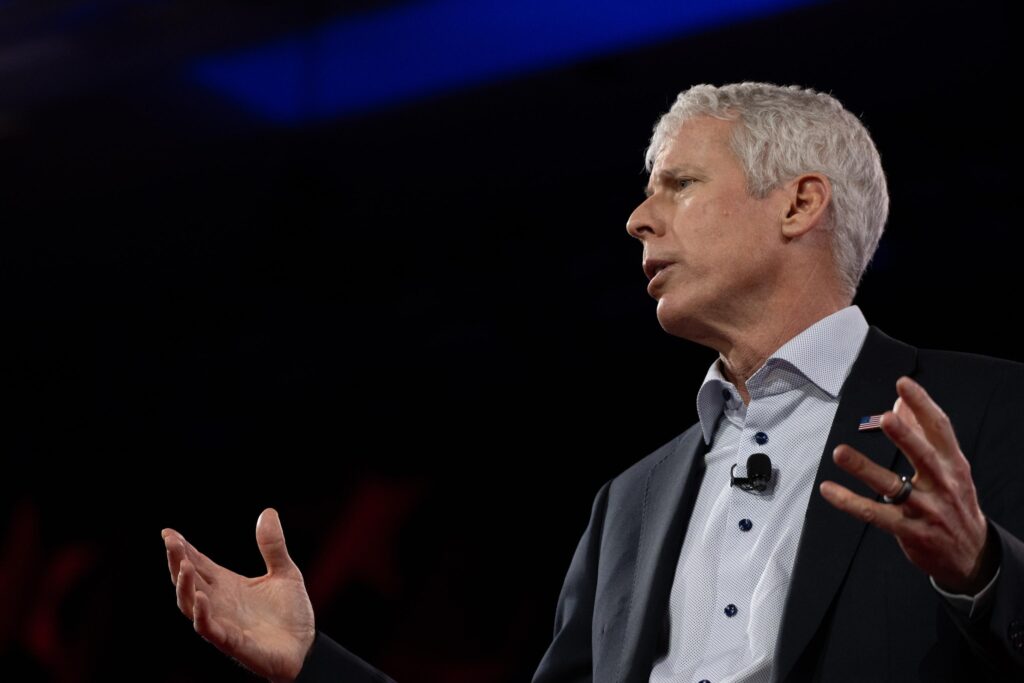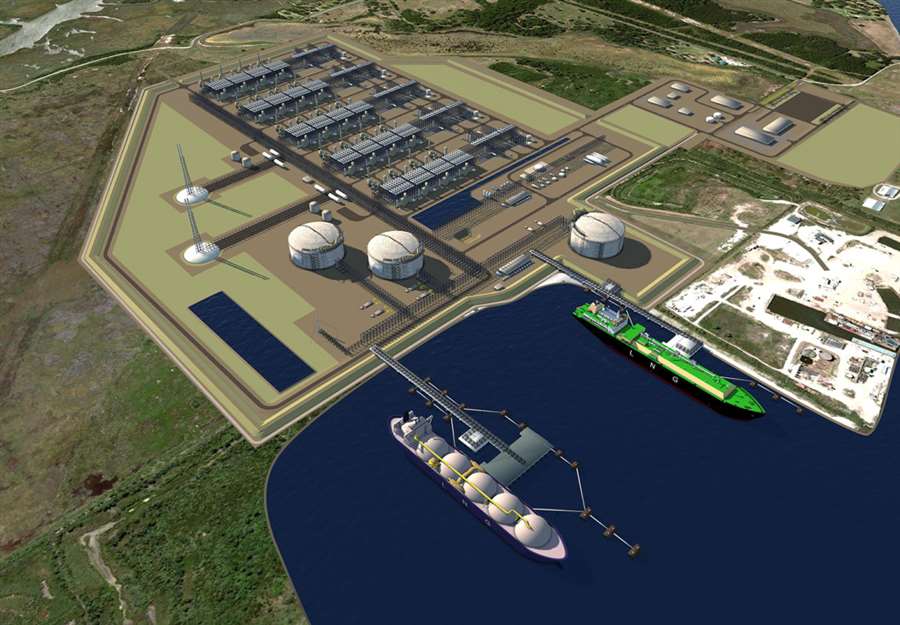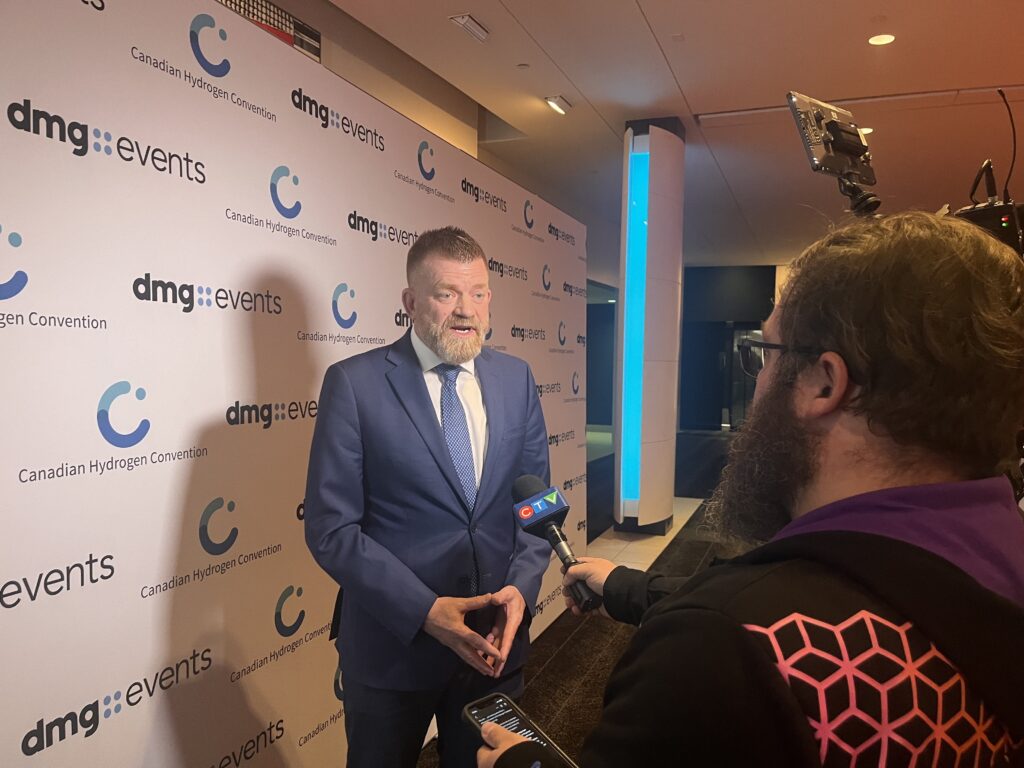U.S. President Donald Trump continues to upend global financial markets, with his chaotic tariff announcements last week plunging the Dow almost 4,000 points in two days and wiping out more than $4.8 trillion in value on the S&P 500.
Canada was hit somewhat less than feared, however our country remains on economic wartime footing given that annexation ambitions apparently live on in the mind of the U.S. administration. And with war comes a rare sense of urgency and shared purpose.
This surreal episode exposes the vulnerability of Canada’s trade dependence on the U.S. but also provides a fleeting opportunity to build economic self-sufficiency and the clean infrastructure of tomorrow.
With a Canadian election happening April 28, will our current political leaders be bold enough to meet these challenges if elected?
Forget the outdated plans politicians have been pushing to revise zombie pipelines like Energy East. We should instead be massively investing in clean energy, overhauling the electrical grid and radically changing how we process and use bitumen from the oil sands.
One climate thinker with a clear sense of how Canada could do this is Vancouver-based writer Seth Klein, who recently told DeSmog that, “When we need to urgently build big things we have to do it ourselves.”
Klein explored how to become energy self-sufficient at the scale our rapidly heating climate demands in A Good War. First published in 2020, it’s a newly relevant book that reminds how Canadian political and business leaders radically retooled our economy in the Second World War, and what lessons we could apply to the battles of today.
How to Get Canada onto Wartime Climate Footing
His book documents how quickly our country can move if armed with the necessary resolve and resources. By the end of WWII Canada had manufactured 800,000 military vehicles – more than Japan, Germany and Italy combined. Under the leadership of Minister of Munitions and Supply, CD Howe, Canada also cranked out 700 ships and 16,000 aircraft.
During WWII the Canadian government instead set up 28 crown corporations, purpose built and publicly owned to deliver what the country needed. To Klein, the lessons for today’s climate fight are clear.
“Much of the climate infrastructure we need is public,” said Klein. “Private sector interest is not going to build a national electric grid. There’s no private sector interest that’s really going to go all in on high-speed rail. It’s going to have to be public, so unless we’re prepared to just do it ourselves, it’s not going to happen.”
So where does Klein believe we can access what he calls “steady, big, reliable funding”?
“I think the principal way we should pay for it right now is through an export tax on oil and gas, because that’s where Trump is telling us he’s vulnerable, and demand is inelastic. If we had a 15 percent export tax on our oil and gas exports to the United States, it could raise $25 billion a year. There’s your climate infrastructure fund,” he said.
This move would also bring the energy sector in line with other Canadian exports that have a 25 percent Trump tariff, rather than the current 10 percent he imposed on oil and gas shipments.
The Clean Investments Canada Should Be Making
There are obvious infrastructure investments needed to lay a solid foundation for scaling up clean energy capacity. Just as arcane interprovincial trade barriers are finally falling, we also need to rapidly integrate our electricity grids between provinces.
B.C. and Manitoba would then be able to use hydro reservoirs as massive batteries to maximize the enormous but sometimes intermittent wind and solar potential in Saskatchewan and Alberta. Our provincial grids have largely been built north-south, tying into energy distribution hubs that primarily benefit the U.S. We now need to build such networks in Canada.
Oil sands extraction is not ending anytime soon, but what if bitumen could be converted into a noncombustible end product worth seven times as much? Alberta Innovates has been sponsoring research to turn bitumen into carbon fibre, and this promising technology is finally moving out of the lab and into commercial production.
Upgrading bitumen into higher value products including activated carbon and asphalt binder would add almost $180 per barrel in value. Alberta could be a global powerhouse for low-cost carbon fibre production helping to build Canadian-owned value-added supply chains for next generation auto parts, the aerospace sector and wind turbines.
Geothermal generation holds great potential to provide reliable emissions-free baseload power but typically needs very specific geology and therefore has not been scalable until now. Calgary-based Eavor instead creates a closed loop underground radiator using directional drilling techniques pioneered in the oil and gas industry, allowing clean power to be harvested for heating and electrical generation from almost anywhere. The company is building a 70 megawatt commercial installation in Bavaria scheduled to come online in 2026, and another 30 megawatt project underway in Hanover.
Why aren’t we scaling up these home-grown innovations at home? Canada remains the only country in the Pacific Rim that doesn’t produce a single kilowatt of geothermal electricity despite having some the best drilling expertise in the world. Our world-class drilling know-how can be repurposed to access an almost limitless source of energy.
Trump’s Biggest Vulnerabilities
This connects to another key lesson learned from Canada’s war effort in the 1940s: the need for transparent burden-sharing to ensure ongoing national unity. “One of the very first things the government did was implement an excess profits tax, so that the kind of profiteering we saw in World War One or in the [COVID] pandemic was illegal. That’s how you communicate that we were really all in it together,” said Klein. “This is why you would want this export tax on oil and gas. If people don’t feel a sense of mutual shared sacrifice, then you can’t sustain social solidarity.”
And despite Alberta Premier Danielle Smith proclaiming that any oil export taxes or restrictions would create an “unprecedented national unity crisis”, public opinion across the country is strongly in favour of an export tax on Canadian oil, including 80 percent of people polled in the prairie provinces.
Smith instead seems the likely source of any Canadian unity crisis with recent revelations she “told administration officials” to pause Trump’s unprovoked trade war until after the Canadian election to help Conservative leader Pierre Poilievre. As documented by DeSmog, she also spoke at a MAGA-adjacent fundraiser with right-wing influencer Ben Shapiro who has called Canada a “silly country that makes maple syrup, hockey and annoying prime ministers.”
In any war it helps to know your opponent’s biggest vulnerabilities, and on this front Trump has been very helpful. Klein believes he has clearly telegraphed the weakest part of his negotiating position by having a lower tariff on energy rather than the 25 percent tariff for the rest of Canadian exports.
“These are all tells by Trump. The fact that it’s a lower tariff for oil and gas, the fact that he wants Keystone XL. His Energy Secretary suggested that maybe it wouldn’t be any tariff on oil and gas,” said Klein. “And if we are in a high stakes poker game here to ignore a tell like this would be a critical mistake.”
Whoever is elected as a wartime Prime Minister on April 28 should study the important lessons learned during the last war that threatened our nation.
Subscribe to our newsletter
Stay up to date with DeSmog news and alerts







